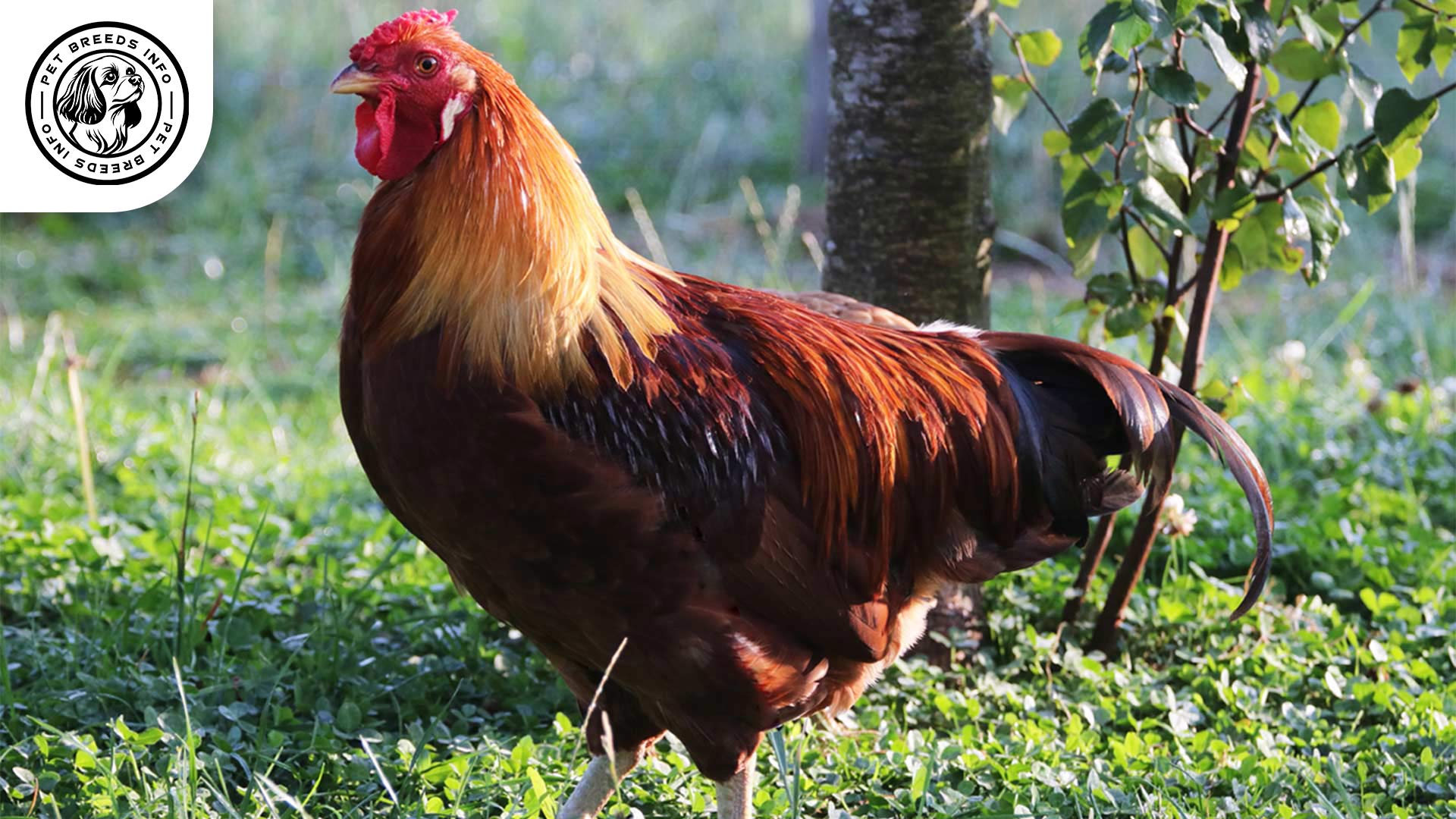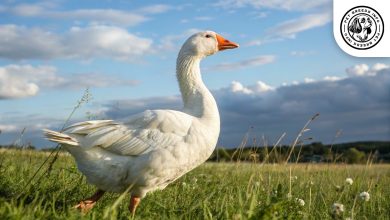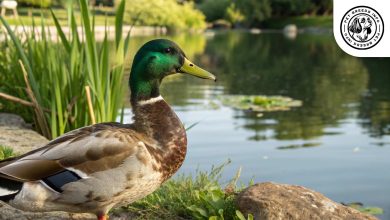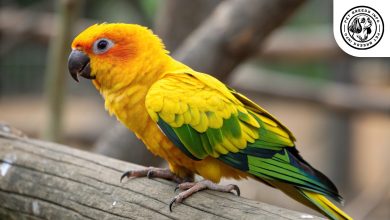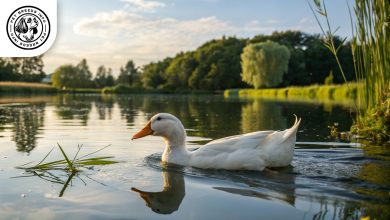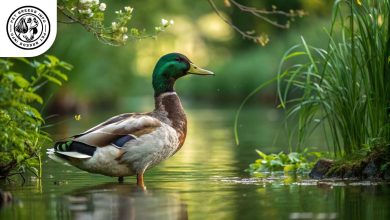Marsh Daisy Chicken Breed: Personality, Lifespan, Food & Care
General Introduction of the Breed
The Marsh Daisy Chicken is a rare and heritage breed originating from the United Kingdom, specifically Lancashire. This breed was developed in the late 19th century as a dual-purpose bird, valued for both egg production and meat. It was created by crossing various breeds, including the Malay, Game fowl, and Hamburg, resulting in a hardy, lightweight bird well-suited for free-range environments.
Table of Contents
| Common Name | Marsh Daisy Chicken |
| Scientific Name | Gallus gallus domesticus |
| Origin | Lancashire, United Kingdom |
| Size | Medium-sized; Males: ~2.7 kg (6 lbs), Females: ~2 kg (4.4 lbs) |
| Lifespan | 5–8 years |
| Talking Ability | Not applicable (chickens do not talk; they cluck, crow, and vocalize) |
| Colors | Wheaten, brown, buff, black, white (wheaten most recognized) |
| Noise Level | Moderate (typical chicken vocalizations, e.g., clucking and crowing) |
| Social Behavior | Calm, independent; less social but compatible with other chickens; can bond with humans through handling |
Physical Characteristics
The Marsh Daisy Chicken is a medium-sized bird with a slim, lightweight frame. Males typically weigh around 2.7 kg (6 lbs), while females average 2 kg (4.4 lbs). This breed has a single comb and a short, stout beak. It features a compact but upright stance, with strong legs that are typically willow-colored.Common feather colors include wheaten, brown, buff, black, and white, though wheaten is the most recognized variety. The Marsh Daisy’s eyes are reddish-bay in color, creating a striking contrast against its plumage. One distinctive feature of this breed is its rich feather coloration paired with a relatively sparse feathering, giving it a sleek, streamlined appearance.
Read More: Silver Bantam Duck
Personality and Temperament
The Marsh Daisy Chicken is known for its calm, intelligent, and independent nature. Despite being reserved, it can develop a strong attachment to its owners with regular handling. It is an active forager, thriving best in free-range environments where it can search for food. It is a hardy bird, capable of withstanding various weather conditions. While it is generally gentle, it can be somewhat wary of strangers. This breed is compatible with other chickens but may be less social than more docile breeds.
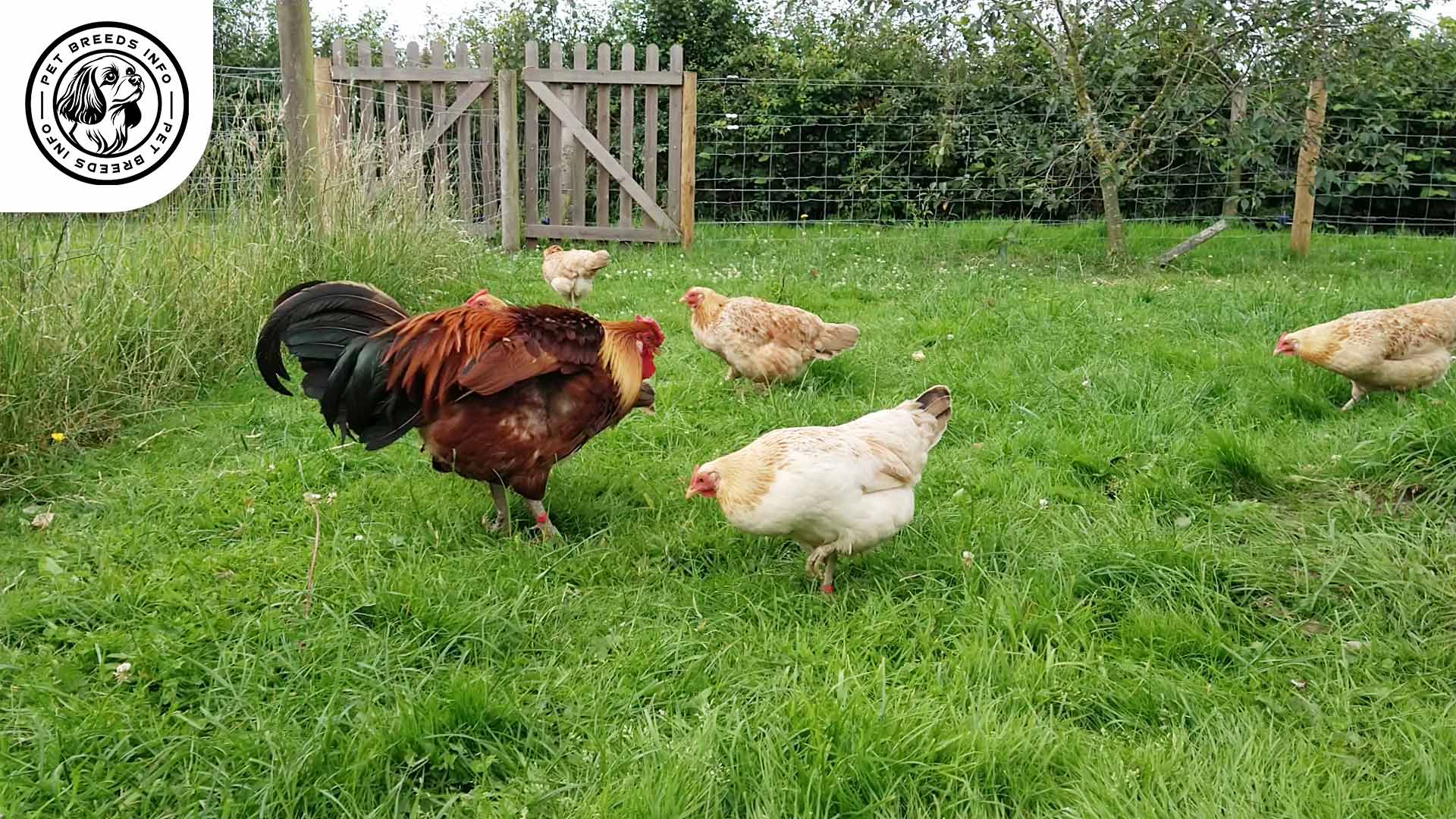
Care and Maintenance Requirements
Marsh Daisy Chickens thrive in free-range or semi-free-range settings where they can forage. They require space to roam and tend to perform best in rural or farm environments. They do not require extensive grooming, but regular health checks are recommended to monitor their condition. Their relatively sparse feathering makes them somewhat susceptible to cold weather, so providing a dry, insulated shelter is important in winter. Their diet should be complemented with grit for digestion, and their coop should be cleaned regularly to prevent health issues.
Diet and Nutrition
The Marsh Daisy Chicken should be fed a balanced poultry diet that includes quality grains, vegetables, and protein sources. Commercial layer feed is ideal for hens, while supplementing with natural foraging can enhance their health and productivity. Avoid feeding them toxic foods such as avocado, chocolate, and excessive onion or garlic, as these can be harmful to their health. Fresh water should always be available, and calcium supplements, such as crushed oyster shells, can be beneficial for egg-laying hens.
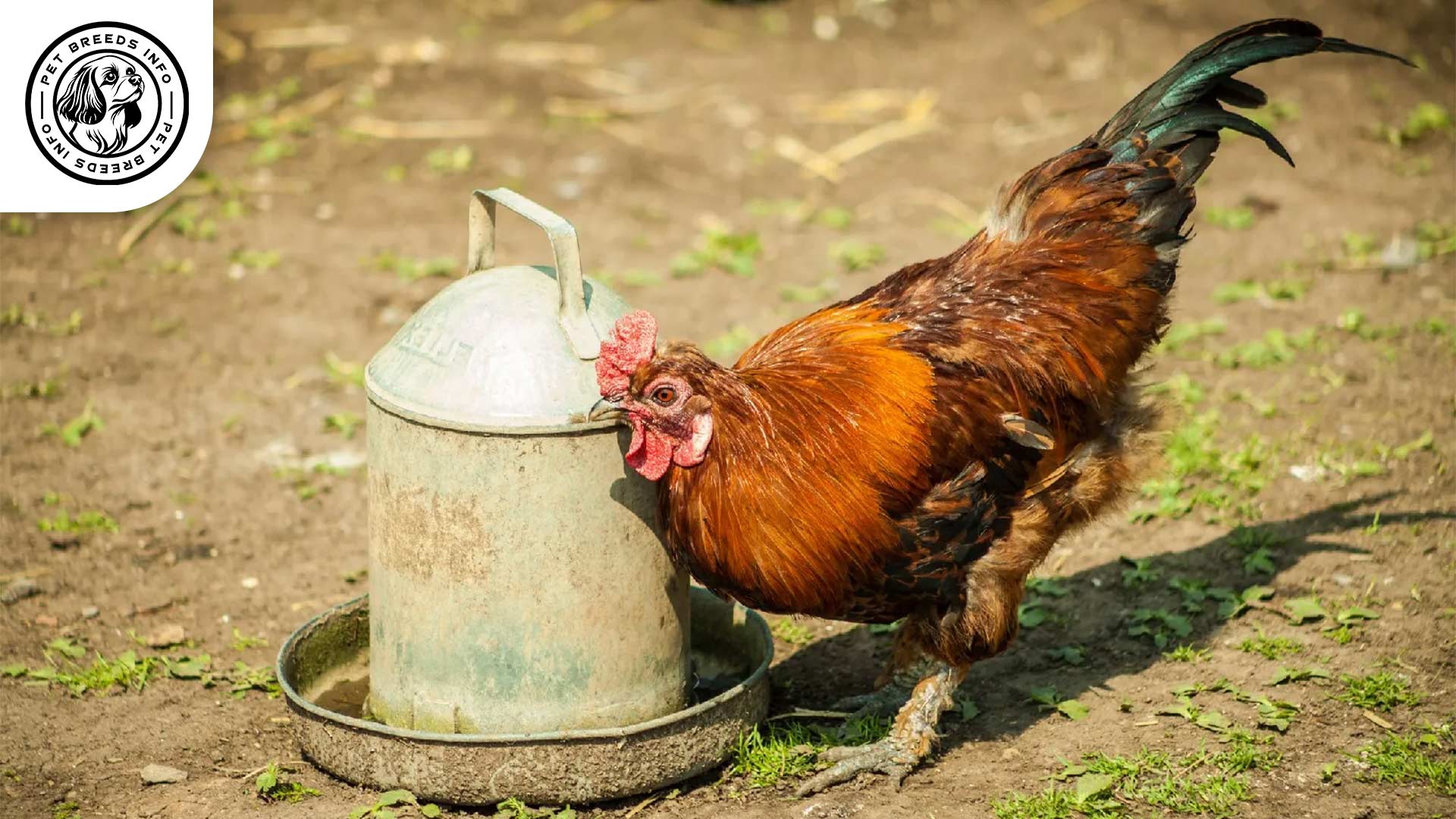
Health and Common Medical Issues
The Marsh Daisy Chicken is generally a hardy and disease-resistant breed, thanks to its strong foraging abilities and natural resilience. Common poultry concerns like mites, respiratory infections, and digestive issues may arise, so regular health monitoring is essential. Routine vaccinations and parasite control practices are recommended to ensure their longevity and well-being. This breed has an average lifespan of 5 to 8 years under proper care.
Read More: Vorwerk Chicken
Training and Behavior Management
While training is not necessary for chickens in the same way as dogs or cats, the Marsh Daisy Chicken can become accustomed to humans through consistent interaction. Feeding them by hand and spending time near them can help build trust and reduce their natural wariness. Providing a secure environment and structured routines will also contribute to their well-being.
Interaction with Other Animals and Humans
The Marsh Daisy Chicken is generally peaceful but may not be as social as some other breeds. It gets along well with other chickens if raised in a group. With proper handling from a young age, they can become more comfortable with humans, making them suitable for backyard farms and family settings. They are best suited for families or individuals who have experience with poultry care and can provide a safe, free-range environment.
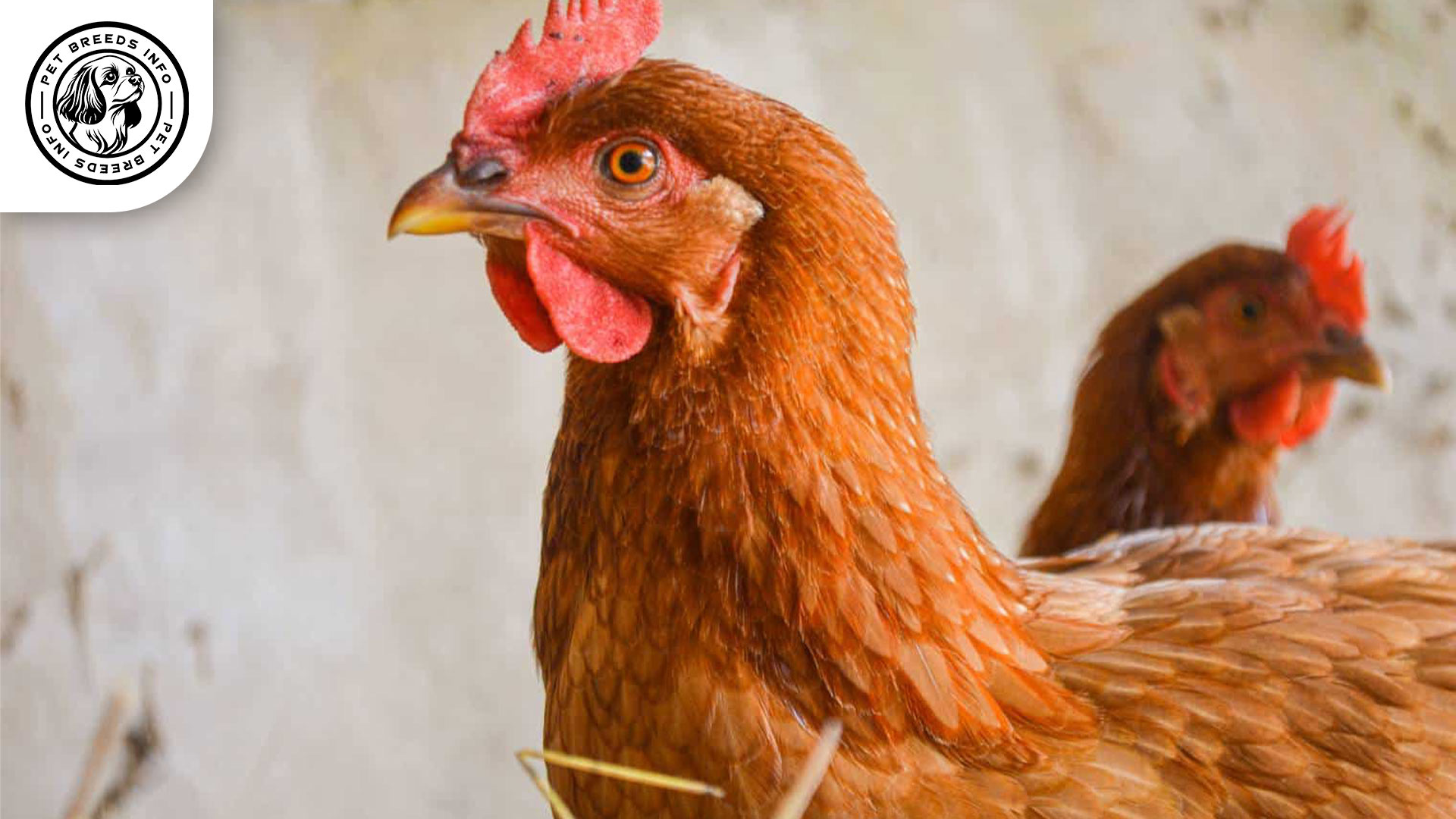
Price and Availability
Due to its rarity, the Marsh Daisy Chicken can be challenging to find and is often more expensive than common backyard chicken breeds. Prices can range from $15 to $40 per chick, with adult birds costing more depending on breeding quality. It is recommended to purchase from reputable breeders or specialty poultry farms to ensure the health and authenticity of the breed.
Final Thoughts
The Marsh Daisy Chicken is an excellent choice for those seeking a rare, hardy, and independent bird for free-range farming. While it is not the most social breed, it can develop bonds with its owners through regular interaction. This breed is well-suited for rural environments where it can forage freely. However, it may not be ideal for those seeking a highly interactive backyard pet. With proper care and attention, the Marsh Daisy Chicken can be a rewarding breed to raise, offering both beauty and productivity as a dual-purpose fowl.
Read More: Sicilian Buttercup Chicken
FAQ
What is the Marsh Daisy Chicken?
A rare, heritage breed from the UK, valued as a dual-purpose chicken for eggs and meat, known for its hardiness and free-range suitability.
What do Marsh Daisy Chickens look like?
They are medium-sized with a slim frame, willow-colored legs, and colors like wheaten, brown, buff, black, or white, with reddish-bay eyes.
Are Marsh Daisy Chickens good for beginners?
They’re better suited for those with poultry experience due to their independent nature and preference for free-range environments.
How do I care for a Marsh Daisy Chicken?
Provide a free-range setup, a balanced diet, insulated shelter for winter, and regular health checks to ensure their well-being.
Where can I find Marsh Daisy Chickens?
They are rare and available from reputable breeders or specialty poultry farms, costing $15–$40 per chick.
